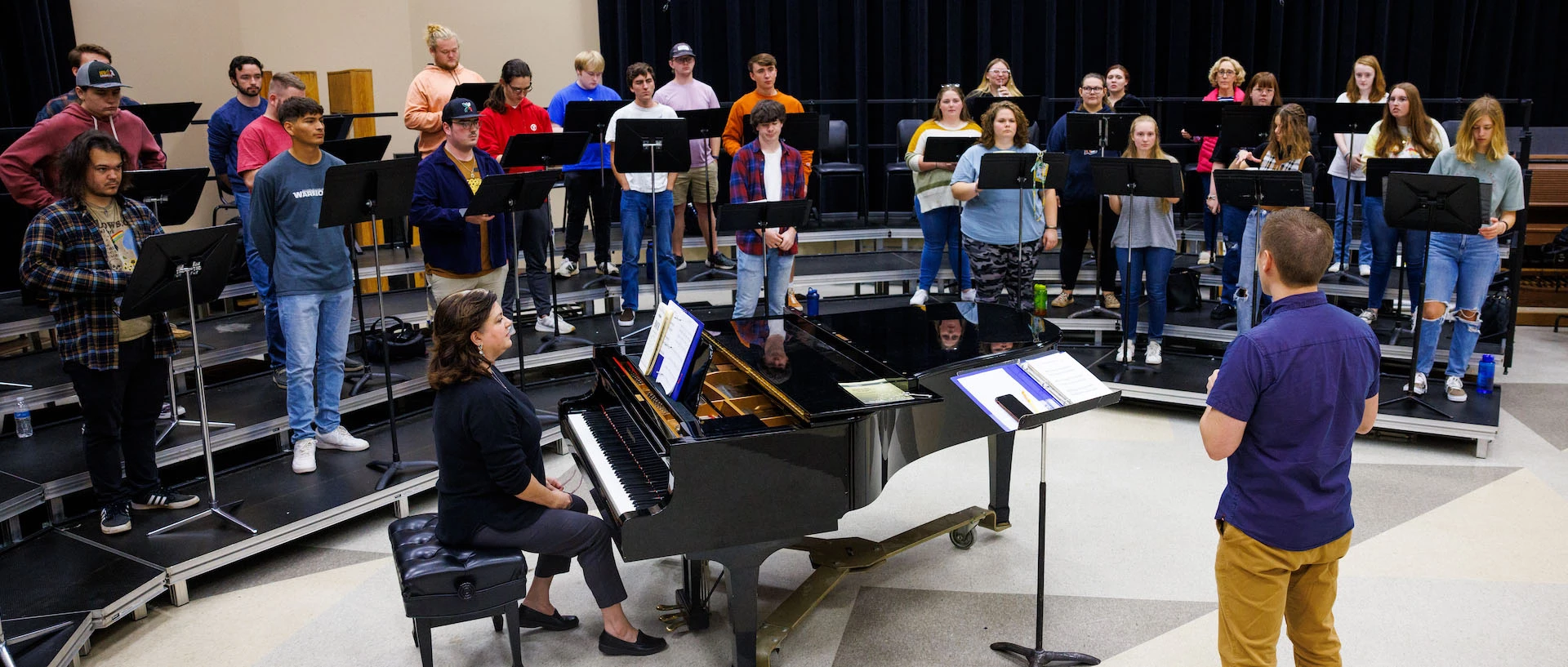
Music Education (BA)
Teach the power of music, powered by faith.
A degree in Music Education from SWU prepares you to be the best music teacher you can be—whether you teach in a school, a church, or the world at large. You’ll integrate faith with music theory and practice, dedicate yourself to musical excellence, and learn from caring faculty with professional experience in music education. Practice your applied instrument (voice, organ, percussion, piano, string, or wind instruments) and work with musical concepts in our specialized computer lab.
Gain real-world experience through observation and student teaching and opportunities to develop outside the university, including involvement with local high schools, church choirs, and more. A Music Education degree from SWU means you’ll graduate with state certification to teach music to K-12 students. Plus, you’ll have everything you need to perform, teach, and communicate about music.
Dr. Amber James
Department of Music Coordinator and Associate Professor of Music
ContactDr. Greg Day
Associate Professor of Music and Director of Instrumental Ensemble
ContactDr. Samuel Miller
Assistant Professor of Music and Director of Choral Activities
ContactLori Shelton
Assistant Professor of Piano and Collaborative University Pianist
Contact“What stood out to me was the Christian environment and tight-knit communutity... Everyone is so inviting and welcoming.”Dalton Land - Choral Music Education Major
- Band director
- Clinician
- Choral director
- Community/school music director
- Lecturer
- Marching band director
- Music school administrator
- Music teacher
- Music therapist
- Musical theater
Graduates of the Music Education program will be able to:
- Demonstrate understanding of and ability to think critically about music history through discussions focusing on Christian cultural contexts and other prevailing philosophical constructs.
- Listen to and comprehend musical masterworks, communicate about music in spoken and written formats, and apply their understanding to instrumental performances.
- Showcase their learning through practical application in real-world situations, including your student teaching experience.
- Conduct in classroom settings and demonstrate the ability to recognize, analyze, and interpret gestures (for those pursuing conducting).
